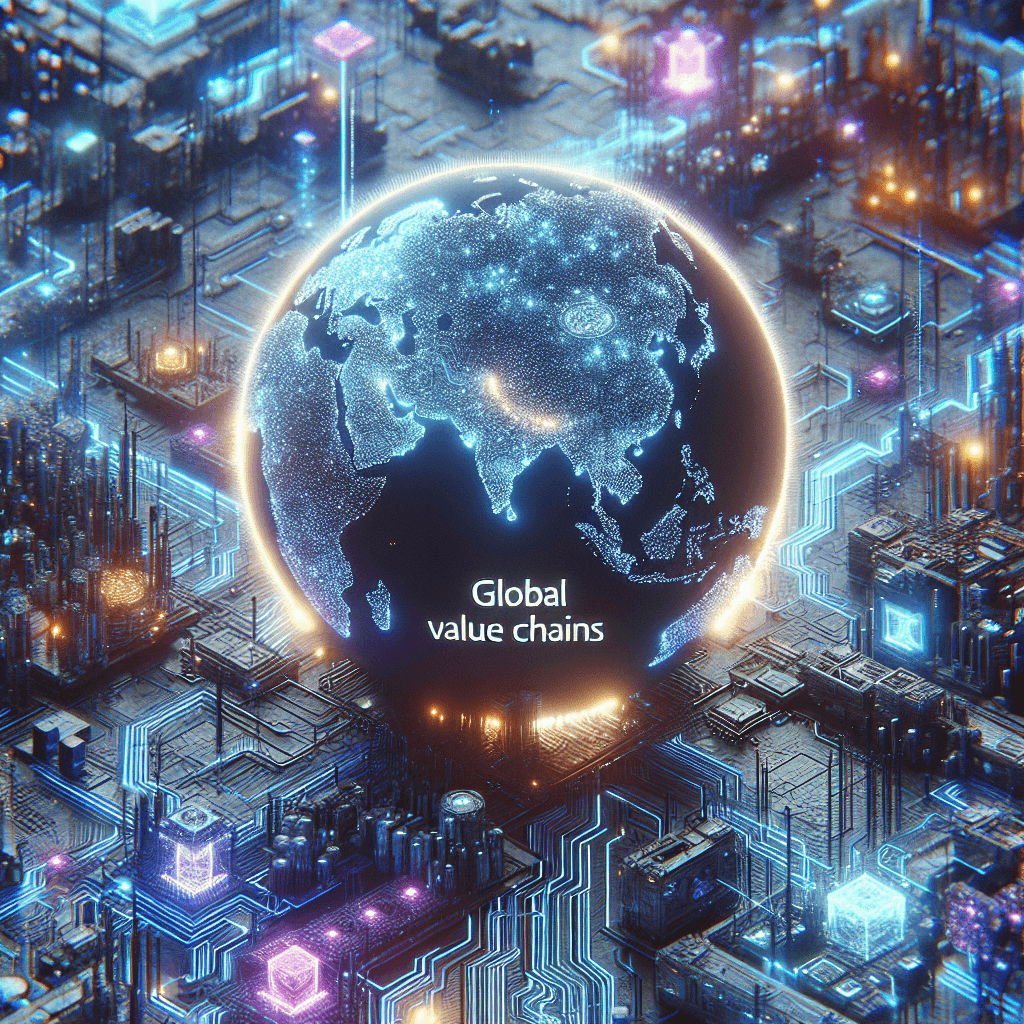Exploring Global Value Chains in Star Atlas

Exploring Global Value Chains in Star Atlas
In the ever-evolving universe of gaming and blockchain, Star Atlas stands out as a pioneering project that intricately intertwines decentralized finance and immersive gameplay. At the heart of its economic model lies the concept of global value chains (GVCs), a fundamental framework that can enhance our understanding of how various elements within the game interact and contribute to its ecosystem.
What are Global Value Chains?
Global value chains refer to the full range of activities that businesses engage in to bring a product from conception to final consumption. These activities often span multiple countries and incorporate various stakeholders, including suppliers, manufacturers, and retailers. In the context of Star Atlas, GVCs help us analyze how different components of the game economy, such as in-game assets, resources, and player interactions, come together to create value.
The Role of Components in Star Atlas
-
Asset Creation: Each player in Star Atlas can create, modify, or trade assets such as ships, structures, and resources. This is akin to the production phase in a traditional GVC, where raw materials are transformed into finished goods. Here, players act as both creators and consumers.
-
Resource Management: In Star Atlas, resources such as mining materials are critical for building and enhancing assets. Players must manage these resources effectively to maximize their value. This mirrors the supply chain aspect of GVCs, where efficient resource allocation leads to higher productivity.
-
Economic Transactions: The in-game economy relies heavily on transactions, akin to the distribution phase in a GVC. Players trade and sell their assets on decentralized marketplaces, explaining how value is transferred and created in a decentralized economy.
- Stakeholder Interactions: Different factions and alliances within Star Atlas represent diverse stakeholders in a GVC. Collaboration and competition between these factions can lead to both innovation and conflict, shaping the game’s economic landscape.
The Importance of Data Analytics
Understanding global value chains in Star Atlas is not just theoretical; it has practical implications for players and investors alike. By leveraging analytical tools, players can gain insights into market trends, resource availability, and asset valuations. At Titan Analytics, we provide specialized modules that help players navigate this complex web of interactions to make informed decisions.
How to Get Involved
As you explore the vibrant universe of Star Atlas, consider how the principles of global value chains can enhance your gameplay experience. Whether you’re a casual player or looking to invest, understanding these interactions will provide a competitive edge.
To dive deeper into Star Atlas analytics, visit Titan Analytics Star Atlas Data Modules. If you have any questions or need assistance with data analysis, feel free to contact Titan Analytics.
Together, let’s unlock the potential of the Star Atlas universe!




